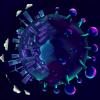
The latest news, research, and other resources produced by members of the IIASA community who are working to provide decision-makers with the information they need to address the COVID-19 crisis.
News

24 January 2023
How has the COVID-19 pandemic affected immigration?
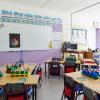
24 November 2022
How COVID-19 school closures will affect inequalities in adult skills
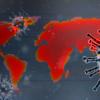
23 November 2022
What was the true human cost of the pandemic in Russia?
Pagination
Events
Pagination
Blog
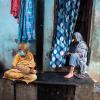
20 May 2021
How has the COVID-19 pandemic affected the urban poor?
Benigna Boza-Kiss, Shonali Pachauri, and Caroline Zimm explain how COVID-19 has impacted the poor in cities and what can be done to increase the future resilience of vulnerable populations.

15 April 2021
Using the COVID-19 pandemic to transform the energy sector
The IIASA-ISC Rethinking Energy Solutions Report identifies the negative and positive lessons learnt from the ongoing COVID-19 pandemic in relation to energy consumption and demand, and recommends several immediate actions.
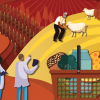
08 April 2021
Restructuring the food system after COVID-19
The IIASA-ISC Resilient Food Systems report looks at the vulnerabilities in the food system and recommends changes to move forward through COVID-19 recovery plans that prioritize society’s least protected.
Pagination
Publications
Ghio, Daniela, Goujon, Anne , & Bosco, Claudio (2024). Mobility patterns in Austrian and Italian municipalities in the decade before and during the COVID‐19 era. Population, Space and Place e2848. 10.1002/psp.2848.
Fürnkranz-Prskawetz, A., Sobotka, T., & Zeman, K. (2024). Demographische Folgen der COVID-19- Pandemie. In: Die COVID-19-Pandemie und das Impfwesen einst und heute. Clemens-vonPirquet-Symposium Akademie im Dialog - Forschung & Gesellschaft, 29–30 September 2022.
González-Leonardo, M., Rowe, F., Potančoková, M. , & Goujon, A. (2024). Assessing the Differentiated Impacts of COVID-19 on the Immigration Flows to Europe. International Migration Review e01979183241242445. 10.1177/01979183241242445.
Klimek, P., Ledebur, K., Gyimesi, M., Ostermann, H., & Thurner, S. (2024). Forecasting the Early Impact of COVID-19 on Physician Supply in EU Countries. International Journal of Health Policy and Management 13 (1) 1-11. 10.34172/ijhpm.2024.7555.
Sokolov, A., Royzenson, G., Komendantova, N. , & Ekenberg, L. (2024). Technology for Creating Systems for Monitoring and Predictive Modeling the State of Hazardous Phenomena and Objects (on the Example of the Covid-19 Epidemic). In: 12th World Conference “Intelligent System for Industrial Automation” (WCIS-2022). Eds. Aliev, R., Yusupbekov, N., Kacprrzk, J., Pedrycz, W., Babanli, M., Sadikoglu, F., & Turabdjanov, S., pp. 202-209 Springer. 10.1007/978-3-031-51521-7_26.
González-Leonardo, M., Rowe, F., Potančoková, M. , & Goujon, A. (2024). Assessing the differentiated impacts of COVID-19 on the immigration flows to Europe. OSF preprints 10.31219/osf.io/bsezk.
González-Leonardo, M., Cabrera-Arnau, C., Neville, R., Nasuto, A., & Rowe, F. (2024). “Urban Exodus” During COVID-19in Mexico? UsingDigital Data to AnalyzeMedium-Term Pandemic Impacts on Internal Population Movements. OSF preprrints 10.31219/osf.io/e4au9. (Submitted)
Caulkins, J.P., Grass, D., Feichtinger, G., Hartl, R.F., Kort, P.M., Kuhn, M., Fürnkranz-Prskawetz, A., Sanchez-Romero, M., Seidl, A., & Wrzaczek, S. (2023). The hammer and the jab: Are COVID-19 lockdowns and vaccinations complements or substitutes? European Journal of Operational Research 311 (1) 233-250. 10.1016/j.ejor.2023.04.033.
Erokhin, D., Yosipof, A., & Komendantova, N. (2022). COVID-19 Conspiracy Theories Discussion on Twitter. Social Media + Society 8 (4) 1-10. 10.1177/20563051221126051.
Sanderson, W. & Scherbov, S. (2023). The effect of the COVID-19 pandemic on life expectancy in the USA: An application of hybrid life expectancy. Biology Methods and Protocols 8 (1) bpad025. 10.1093/biomethods/bpad025.
